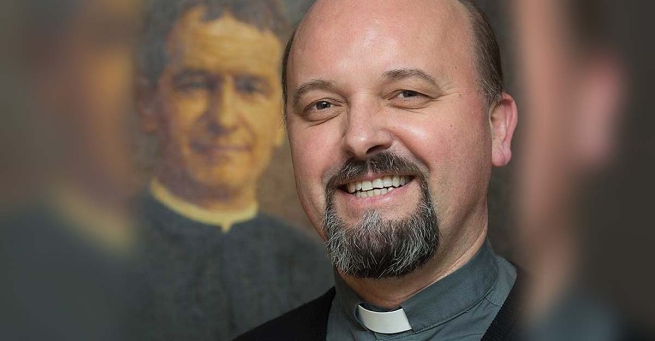Dear Readers, friends of the Salesian Family and benefactors who help with Don Bosco’s work in all situations and in all contexts, in sending you a thought via the Salesian Bulletin, I have chosen to reflect a little longer, as we did last month, on the topic of Hope. I do so not only for the sake of continuity, but mainly because it is a topic that begs to be addressed because we all need it so much. It is an acceptance of God's gentleness in our lives. But when we speak about Hope, let us remember, first of all, that it is a component of profound humanity and a clear criterion for interpreting life in all religions.
Hope has much to do with transcendence and faith, love and eternal life, Korean philosopher Byung-Chul Han points out. He underlines in his writings that while we work, produce, and consume, there is no form of openness to the transcendent and no Hope when living in this way.
We exist in a time deprived of the dimension of celebration, even though we are surrounded by things that dazzle us. A time without celebration is a time without Hope. The society of consumption and performance in which we live is in danger of making us incapable of happiness, of rejoicing over the reality of our lives (even the most difficult situation always shows glimmers of light!).
Hope makes us believers in the future because the place where we experience Hope most intensely is in the Transcendent. Czech writer and politician Vaclay Havel, president of Czechoslovakia in the era of “The Velvet Revolution,” which many of us will recall, defines “hope” as a state of mind, a dimension of the soul.
Hope is an orientation of the heart that transcends the world of experience in the here and now; it is a mooring somewhere else beyond the horizon. The roots of Hope lie somewhere within the Transcendent. That is why having Hope and being satisfied because things are going well are not one and the same thing.
When we speak about the future, we understand it in relation to what will happen tomorrow, next month, or two years from now. The future is what we can plan, predict, control, and make optimal. Hope is the construction of a future that connects us to that future that never ends - to the transcendent, to the Divine dimension. Cultivating hope is good for our heart because it puts energy into our efforts to construct our way to Heaven.
The word most uttered by Don Bosco
Fr. Alberto Caviglia wrote: “Leafing through the pages that record Don Bosco’s words and speeches, one finds that “Paradise” was the word he used to employ in every circumstance as the greatest compelling argument for every activity for good and for every forbearance in adversity.”
“A piece of Heaven fixes everything!” repeated Don Bosco in the midst of difficulties. Even in modern schools of management, it is taught that a positive vision of the future turns into a life force.
When, old and bent over, he would walk across the courtyard in strides as lengthy as an ant’s, those who were passing by would give him the usual mindless greeting, “Where are we going, Don Bosco?” The saint would reply, with a smile, “To Paradise.”
How much Don Bosco insisted on this: Paradise! He raised his young people to keep the vision of Paradise in their hearts and before their eyes. We all know that we can be Christians, even convinced Christians, but not believe in Paradise.
Don Bosco teaches us to unite our here present with the hereafter. And he does so through the virtue of Hope.
Let us carry this in our hearts and open our hearts to charity and to our humanity that incarnates our deep beliefs.
When you receive this brief message in the month of November, live this Hope together with our Saints and with your beloved deceased, like of group of mountain climbers tethered together by a rope that has its origins in our everyday lives and is anchored, at its end, in the Infinite.
Like Don Bosco, let us live as though we see the invisible, nourished by the Hope that is the Provident Presence of God. Only those who are very grounded, practical, and solid, as Don Bosco was, are able to live by fixing their gaze on the invisible.


